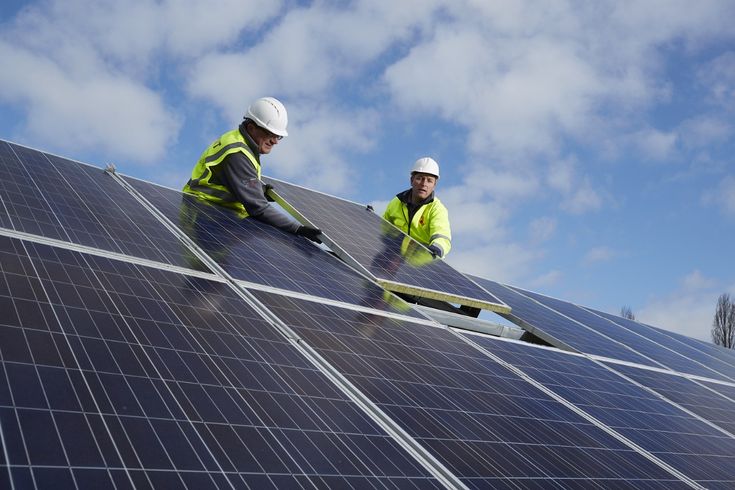Investing in solar energy is one of the smartest financial and environmental decisions a homeowner or business can make. However, the true value of your solar system depends heavily on one crucial factor — the quality of installation. Even the most advanced panels and inverters will underperform if poorly installed. Choosing the right Commercial solar Lincoln contractor ensures your system is safe, efficient, and built to last for decades.
This guide walks you through how to select the best solar contractor and why their expertise directly impacts your system’s long-term performance and savings.
Understanding the Role of a Solar Contractor
A solar contractor does far more than just attach panels to a roof. Their responsibilities include:
-
Designing a solar system that fits your property’s energy needs and roof structure.
-
Ensuring compliance with building codes, safety standards, and electrical regulations.
-
Handling permits, inspections, and utility interconnections.
-
Installing wiring, inverters, and monitoring systems for peak performance.
A qualified contractor blends technical precision with practical experience — their workmanship defines how effectively your system converts sunlight into electricity.
Why Quality Installation Matters
A well-installed solar system delivers higher efficiency, better safety, and longer lifespan. On the other hand, a poor installation can lead to:
-
Electrical faults and reduced energy production.
-
Roof leaks from improper mounting.
-
Voided warranties due to non-compliance.
-
Costly repairs or replacements down the line.
In short, the cheapest contractor isn’t always the best. Quality installation is an investment that maximizes return and minimizes risk.
Step 1: Verify Credentials and Licensing
The first step in selecting a solar contractor is ensuring they are properly licensed and certified. In most regions, solar installation requires:
-
An electrical contractor’s license to perform wiring and electrical work.
-
NABCEP certification (North American Board of Certified Energy Practitioners) or an equivalent, which confirms professional training and adherence to industry standards.
-
Appropriate insurance coverage, including general liability and worker’s compensation.
Ask to see proof of these documents — reputable contractors will be happy to provide them.
Step 2: Evaluate Experience and Specialization
Experience directly correlates with installation quality. Look for contractors who have been active in the industry for several years and can demonstrate expertise in the specific type of system you need — whether rooftop, ground-mount, or hybrid setups.
Ask potential contractors:
-
How many systems have you installed locally?
-
What brands of panels and inverters do you typically use?
-
Can you show photos or references from past projects?
A seasoned solar installer will anticipate potential challenges like roof slope, shading, and wiring routes — and design accordingly.
Step 3: Review Product Partnerships and Warranties
High-quality contractors partner with trusted equipment manufacturers. This ensures not only better system performance but also reliable warranties. Look for companies offering:
-
25-year performance warranties on solar panels.
-
10–15-year coverage on inverters and other components.
-
Workmanship warranties for the installation itself, often lasting 5–10 years.
A contractor who stands behind their work and offers robust warranties is one who values long-term customer satisfaction.
Step 4: Compare Proposals Thoroughly
Obtain at least three detailed quotes from different contractors. Each should outline:
-
System design (layout, size, and estimated energy production).
-
Equipment details (brands and models).
-
Cost breakdown (labor, permits, materials, and extras).
-
Expected savings, ROI, and payback period.
Be cautious of vague or overly cheap estimates — these often indicate corner-cutting on materials or labor. The most transparent proposals are typically from contractors who prioritize long-term performance over quick profits.
Step 5: Check Customer Feedback and Reputation
Customer reviews reveal much about a contractor’s professionalism and reliability. Explore independent review platforms, social media, or local directories. Focus on patterns rather than isolated complaints — consistent positive feedback about punctuality, communication, and post-installation support is a strong indicator of quality.
You can also request to visit a recent installation site or speak with past clients. Contractors who take pride in their work will gladly provide references.
Step 6: Assess Communication and Transparency
A great solar contractor values clear communication from consultation to completion. They should:
-
Explain system design and financing options in plain language.
-
Provide honest production estimates — not exaggerated claims.
-
Keep you informed throughout permitting, installation, and inspection.
Avoid companies that pressure you into signing quickly or fail to answer technical questions. Solar is a long-term commitment, and you need a contractor who treats it as such.



